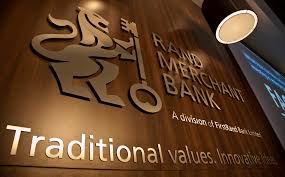
Rand Merchant Bank Ranks Morocco Third Most Attractive Country for Investments in Africa
 South African Bank, Rand Merchant Bank (RMB), issued the sixth edition of its report “Where to Invest in Africa”, ranking Morocco third most attractive investment destination in Africa.
South African Bank, Rand Merchant Bank (RMB), issued the sixth edition of its report “Where to Invest in Africa”, ranking Morocco third most attractive investment destination in Africa.
Morocco came third in the ranking preceded by Egypt and South Africa in the report, which aims to serve as a guide to corporate investment.
According to RMB, Morocco maintains its ranking in the third position for the third consecutive year thanks to steady efforts to improve its business climate. The report also notes that the north African kingdom has benefitted from a greatly enhanced operating environment since the “Arab Spring”.
South Africa was knocked off the top spot by Egypt, with rising concerns about the country’s governance and institutional strength.
Nigeria, Africa’s largest economy by GPD, failed to make it to the top 10, taking the 13th position on the list due to its short-term investment appeal being strained by recessionary conditions.
Surprisingly, Ethiopia, a country dogged by socio-political instability, displaced Ghana to take the fourth spot mostly because of its rapid economic growth, having brushed past Kenya as the largest economy in East Africa.
Ghana’s slide to fifth position was mostly due to perceptions of worsening corruption and weaker economic freedom.
At number nine, Tunisia has made great strides in advancing political transition while an improved business climate has been achieved thanks to structural reforms and greater security and social stability. Côte d’Ivoire slipped two places to take up the tenth position.
Overall, the report warned that the African continent could find itself hovering on the brink of disaster if it continues to depend on its current economic fundamentals and does not usher in economic diversification.
The document highlights those countries, which have understood the need to adapt to the prolonged slowdown in commodity prices and sluggish levels of production growth – and those which have not.
“Over the past three years, some African governments have had to implement deep and painful budget cuts, announce multiple currency devaluations and adopt hawkish monetary policy stances – all as a result of a significant drop in traditional revenues,” says Celeste Fauconnier, RMB Africa Analyst and co-author of Where to Invest in Africa 2018 .
